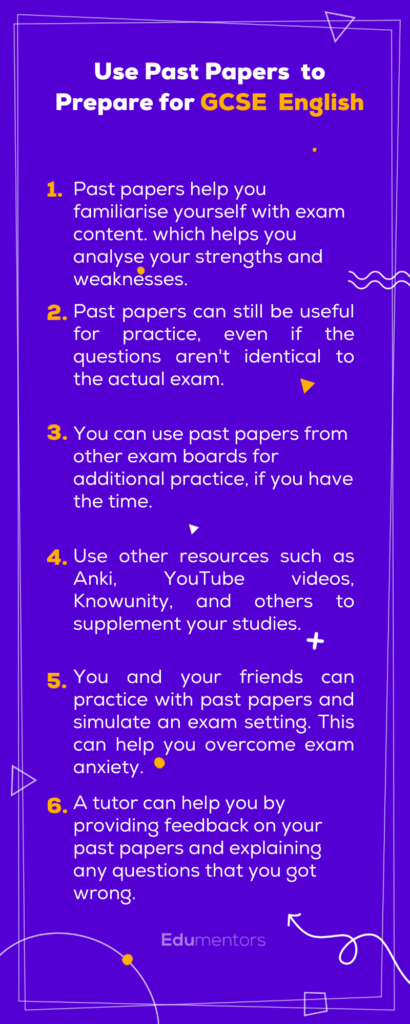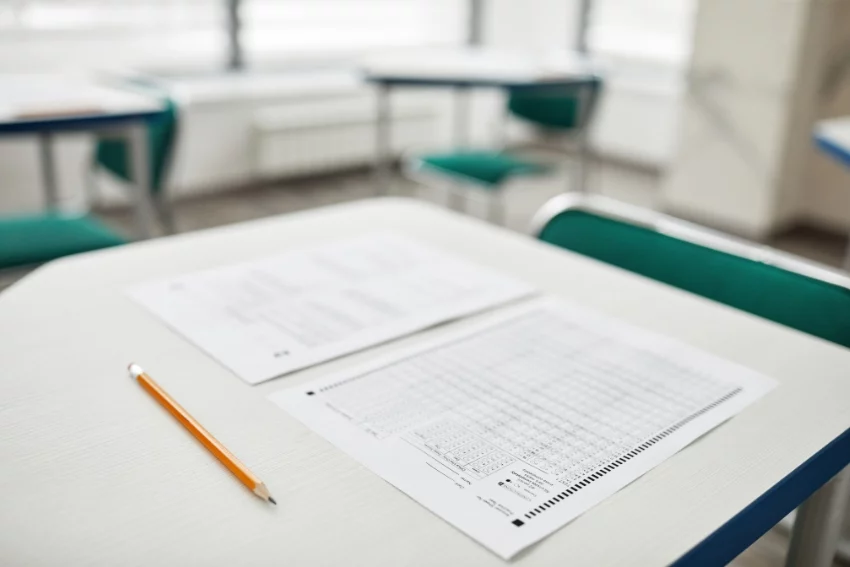Table of Contents:
- Section A: Reading
- Reading Section
- Section A – Reading:
- AQA English Language Paper 1 (8700/1)
- AQA English Language Paper 2 (8700/2)
- OCR English Language Paper 1 (J351/01)
- OCR English Language Paper 2 (J351/02)
- Edexcel English Language Paper 1 (1EN0/01)
- Edexcel English Language Paper 2 (1EN0/02)
- Eduqas English Language Component 1 (C700U10-1)
- Eduqas English Language Component 2 (C700U20-1)
- FAQ About GCSE English Language Past Papers
- Frequently Asked Questions (FAQ)
AQA English Language Paper 1 (8700/1)
AQA English Language Paper 2 (8700/2)
OCR English Language Paper 1 (J351/01)
OCR English Language Paper 2 (J351/02)
Edexcel English Language Paper 1 (1EN0/01)
Edexcel English Language Paper 2 (1EN0/02)
Eduqas English Language Component 1 (C700U10-1)
Eduqas English Language Component 2 (C700U20-1)
Whether you’re a student preparing for your GCSE English language exam, a teacher looking for additional resources, or just someone interested in improving their English skills, you’ll find what you need here.
Here are gathered every available past paper offered by the AQA, Edexcel, and OCR exam boards, so you can be sure you’re getting a diverse range of questions and styles.
Using past papers is a great way to practice and improve your English language skills. By working through these papers, you can get a feel for the types of questions that might come up in the exams and see how your knowledge and understanding stack up. So, let’s get going! 🌟
FAQ About GCSE English Language Past Papers

Frequently Asked Questions (FAQ)
Can I Use Past Papers to Prepare for the GCSE English Language Exam?
Yes, past papers can be a useful tool for preparing for the GCSE English Language exam. Working through past papers can help you get a feel for the types of questions that might come up in the exam and see how your knowledge and understanding stack up.
Past papers can also help you practice time management, as you can use them to simulate the time constraints of the actual exam. Additionally, past papers can help you identify any areas of weakness in your knowledge or skills, so you can focus your studies on those areas.
It’s important to note that past papers may not always be an exact representation of the content and format of the current exam, so it’s important to use them as a supplement to your other study materials and resources.
Are the Questions on the Past Papers the Same as the Ones on the Actual Exam?
It’s possible that some of the questions on past papers may be similar to those on the actual exam, but it’s unlikely that they will be exactly the same. Exam boards often reuse questions or question types from previous exams, but they also create new questions and update the content of the exams to reflect changes in the curriculum and the English language.
That being said, past papers can still be a useful resource for preparing for the GCSE English Language exam. They can give you a sense of the types of questions that might come up and the level of difficulty to expect, which can help you focus your studies and build your confidence. Just be sure to use past papers as a supplement to your other study materials and resources, rather than relying on them as the sole source of practice.
How Do I Know Which Exam Board's Past Papers to Use?
If you’re preparing for the GCSE English Language exam in the United Kingdom, it’s important to use past papers from the exam board that will be administering your exam. The exam boards for GCSE English Language in the UK are AQA, Edexcel, and OCR.
If you’re not sure which exam board you’ll be taking the GCSE English Language exam with, you should check with your school or teacher. They will be able to confirm which exam board’s past papers you should use.
It’s also worth noting that the format and content of the GCSE English Language exam may vary slightly between exam boards. Therefore, it’s important to use past papers from the exam board that you’ll be taking the exam with, rather than mixing and matching from different exam boards. This will ensure that you’re practising with questions and a format that is as close as possible to what you’ll see on the actual exam.
However, if you have enough time and want to get even more practice, you can also consider working through past papers from other exam boards. This can give you a wider range of questions and styles to practice with, which can help you build your skills and knowledge more broadly. Just be sure to allocate the majority of your study time to practising with past papers from the exam board you’ll be taking the exam with.
Can I Get My Answers Marked or Get Feedback on My Work from Past Papers?
All past papers come with their mark schemes so you can mark your own work.
Alternatively, you may be able to get feedback on your work from a teacher or GCSE English tutor. If you’re working through past papers on your own and you don’t have access to a marking scheme or answer key, you can try asking a teacher or tutor to review your work and provide feedback. This can be a great way to identify any areas of weakness and improve your understanding of the material.
It’s worth noting that working through past papers on your own and self-assessing your work can still be a valuable way to practice and improve your skills, even without formal marking or feedback. By paying attention to the questions and the types of responses required, you can get a sense of how well you’re doing and where you might need to focus your studies.
How Can I Improve my English Language Skills Outside of Working Through Past Papers?
There are many ways to improve your English language skills outside of working through past papers. Some ideas might include:
📌 Reading. Reading a variety of texts in English can help improve your vocabulary and understanding of the language. You might try reading novels, non-fiction books, news articles, or other types of texts that interest you.
📌 Writing. Practising your writing skills can help improve your grammar and punctuation, as well as your ability to express yourself in written form. You might try keeping a journal, writing short essays or stories, or even just jotting down your thoughts and ideas.
📌 Speaking. Practising your speaking skills can help improve your pronunciation, fluency, and confidence when speaking English. You might try having conversations with native English speakers, joining a language exchange program, or even just speaking to yourself out loud to get more comfortable with the language.
📌 Listening. Improving your listening skills can help you better understand spoken English and pick up on nuances of the language. You might try watching TV shows or movies in English, listening to podcasts or radio programs or joining a conversation club or language exchange program where you can listen to and practice speaking with others.
There are many other ways to improve your English language skills, and the best approach will depend on your specific goals and learning style. The key is to find activities that are enjoyable and engaging, so you stay motivated and motivated to continue learning.
What topics are in English language paper 1?
English Language Paper 1 typically focuses on assessing students’ reading and writing skills through a variety of topics and texts. The paper is divided into two sections:
The focus is on narrative or descriptive writing, where students are evaluated on their creativity, vocabulary, grammar, punctuation, and overall writing style.
Section A – Reading:
The reading section includes questions based on an unseen extract from a fiction text. This text is often taken from a 20th or 21st-century novel and is used to test students’ abilities to understand, interpret, and analyse.
Students will be asked to summarise information, explain the impact of language choices, and comment on the structure and effects of the text.
Section B – Writing:
The writing section usually asks students to produce a piece of creative writing, often based on a given prompt or image.
How many English language GCSE papers are there in AQA?
Paper 1: Explorations in Creative Reading and Writing – This paper assesses your ability to read and understand unseen literary texts and your creative writing skills. It has two sections: Section A (Reading) and Section B (Writing).
Paper 2: Writers’ Viewpoints and Perspectives – This paper evaluates your comprehension of non-fiction texts and your ability to write from a given viewpoint. It also includes two sections: Section A (Reading) and Section B (Writing).
What is on English language paper 2?
English Language Paper 2 focuses on non-fiction texts and requires students to compare different viewpoints and perspectives. It typically includes two sections:
Section A: Reading
In this section, students will read two non-fiction texts from different time periods, such as articles, letters, diaries, or speeches. They will need to answer questions that test their understanding, analysis, and comparison of these texts.
Section B: Writing
This section requires students to write creatively or persuasively. They might be asked to produce a letter, article, or essay that expresses a point of view or argues a specific case.
How to prepare for English language paper 1?
To prepare for GCSE English Language Paper 1, follow these key steps:
- Review Mark Schemes: Go through mark schemes to understand what examiners are looking for in high-scoring answers. This will help you improve your responses and target key criteria.
- Understand the Exam Structure: Familiarise yourself with the layout of Paper 1, which typically includes reading comprehension and creative writing. Study past papers to understand the types of texts used and the questions asked.
- Practise Analytical Skills: Focus on your ability to analyse language, structure, and form. Practice breaking down extracts from past papers, identifying key techniques like metaphors, similes, and tone.
- Timed Practice: Use past papers to practise under timed conditions. This helps you manage your time effectively during the actual exam.
- Focus on Creative Writing: For the writing section, practise crafting creative pieces with clear structure, descriptive language, and a varied vocabulary. Past papers often provide prompts or images to inspire writing.
What is in English language paper?
The GCSE English Language paper typically includes a variety of reading and writing tasks aimed at assessing students’ comprehension, analytical, and writing skills. The paper is divided into two main sections:
Reading Section
- This section usually includes a range of texts, such as literary extracts, non-fiction articles, and persuasive pieces.
- Students are asked to answer questions based on these texts, which can involve analysing language, explaining the writer’s techniques, and comparing different viewpoints.
Writing Section
- Students are tasked with producing a piece of creative or transactional writing. This can range from narrative or descriptive writing to writing letters, articles, or speeches.
- The emphasis is on demonstrating an effective use of vocabulary, sentence structure, and style suited to the given context and audience.
How to get a 9 English language paper 1?
Achieving a Grade 9 in GCSE English Language Paper 1 requires a combination of detailed understanding, effective exam techniques, and regular practice. Here are some key strategies:
- Seek Feedback: Have your practice papers marked by teachers or tutors. Understanding where you lose marks is crucial for refining your technique and boosting your grade.
- Master the Structure of the Exam: Understand the format of Paper 1, which usually includes a reading section and a writing section. Be familiar with the types of questions asked and the marks allocated for each.
- Develop Strong Analytical Skills: Practise analysing unseen texts to identify key themes, language features, and structural techniques. Pay attention to how writers create effects and present viewpoints.
- Use the PEE Method: When responding to reading questions, use the Point-Evidence-Explanation (PEE) structure to ensure your answers are well-organised and supported by textual evidence.
- Improve Creative Writing: For the writing section, focus on crafting compelling narratives or descriptive pieces. Use varied sentence structures, sophisticated vocabulary, and literary devices such as metaphors, similes, and personification.
- Time Management: Allocate your time wisely during the exam. Spend more time on questions worth higher marks, and ensure you leave enough time to proofread your work.
- Practise Past Papers: Regularly complete past papers under timed conditions to build familiarity and confidence. Analyse your performance and identify areas for improvement.
Is English Language Paper 1 or 2 Harder?
The difficulty of English Language Paper 1 or Paper 2 can vary depending on a student’s strengths and preferences. Paper 1 typically focuses on analysing fiction extracts and creative writing, which might be challenging for those who struggle with interpreting literary texts or expressing creativity.
On the other hand, Paper 2 centres around non-fiction texts and writing to present a viewpoint, which can be more accessible for students who prefer factual content and argumentative writing. Ultimately, the perception of difficulty is subjective, so it’s recommended that students practise both papers to identify which one they find more challenging.









